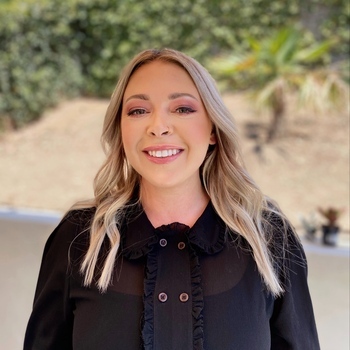
Aimee Ford
Introduction
Trauma has an undeniable effect on people’s lives. Over the years, trauma can shape core beliefs about self, relationships, and the safety of the world. These beliefs can lead to the mind and body feeling unsafe, inferior, and/or without a solid sense of well-being. Trauma can impact the body as well, leading to exhaustion, anxiety, stomach issues, or chronic headaches. The most profound of these is how trauma warps what we tell ourselves about who we are and the world around us. It can make us question: “What could I have done differently?” “What about me made this happen?” These narratives leave us stuck in solving a problem that happened in the past and fixating on our part in the harm we experienced. We can’t change or rewrite the past, but we can come to an understanding of it. We can re-imagine ourselves and our story to begin the healing process. You have survived your trauma; my goal is to provide you with the tools to live well in the next phase of your journey. Everyone has their own story; as such, I will work collaboratively with you to tailor your treatment to your specific wants and needs. I focus on several schools of thought and therapeutic practices to identify your strengths and best support you throughout your therapeutic experience. Specifically, I use Eye Movement Desensitization and Reprocessing (EMDR) in combination with other trauma-informed practices to provide a safe, judgment-free environment in which to process your trauma. As a trauma-informed clinician, I work with a wide range of symptoms and disorders that coexist with trauma or repeated traumas such as anxiety disorders, feeding and eating disorders, relational problems, sexual dysfunction, and substance use disorder. I also work with trauma and stressor-related disorders such as PTSD and C-PTSD, Intimate Partner Violence, the dissociative spectrum, dissociative identity disorder (DID), and sexual trauma. Additionally, I serve as a mental health advocate on a Board of Directors for a non-profit organization dedicated to reducing the stigma related to dissociative identity disorder (DID) by providing educational and support services to mental health practitioners, supporters of people living with DID, and people living with DID. By seeking treatment, you have already begun your healing journey. It would be my honor to support you along the way.
Connect
Highlights
- In-person & telehealth appointments
- Accepts online payments
Licenses
-
AMFT #134153 (CA)
Specialties
Additional focus areas
Treatment Approaches
Population focus
Appointment types
- Individuals
- Groups
Communities
-
LGBTQIA+
-
Lesbian, Gay, & Bisexual
-
Kink/Diverse Sexualities
Age groups
-
Teenagers (12-18)
-
Young Adults (18-24)
-
Adults (24+)
Languages
-
English
Faiths
-
Agnostic
-
Atheist
-
Christian
-
Jewish
Pay with insurance
Looking for practitioners who accept insurance?
Pay out-of-pocket
-
50 minute consultation session $100
-
50 minute session $175